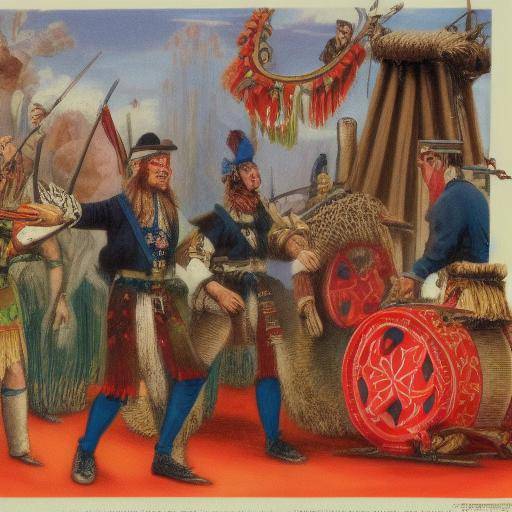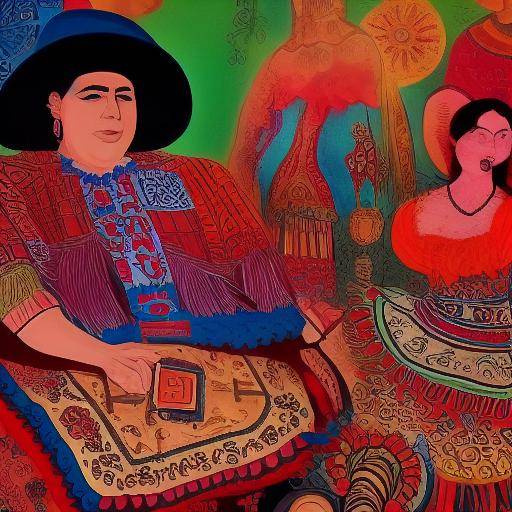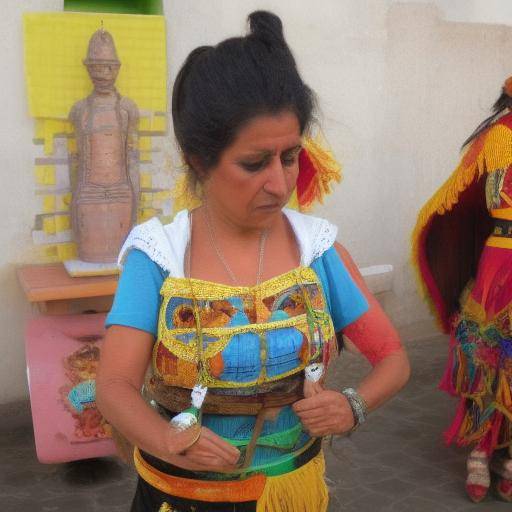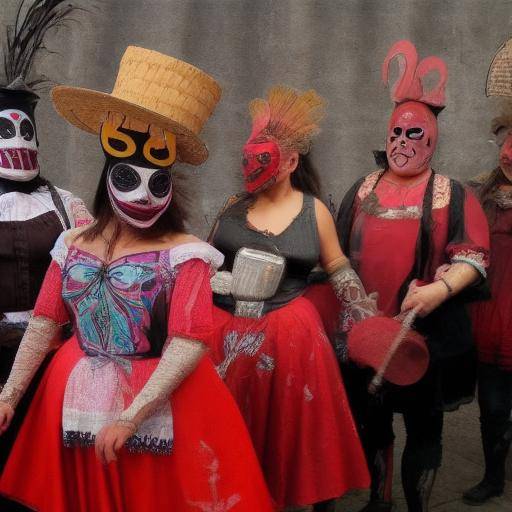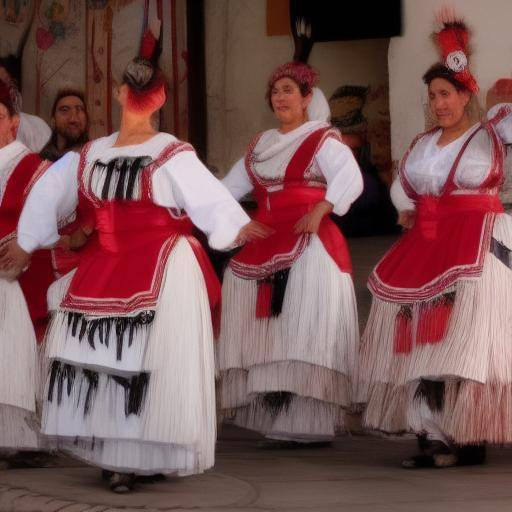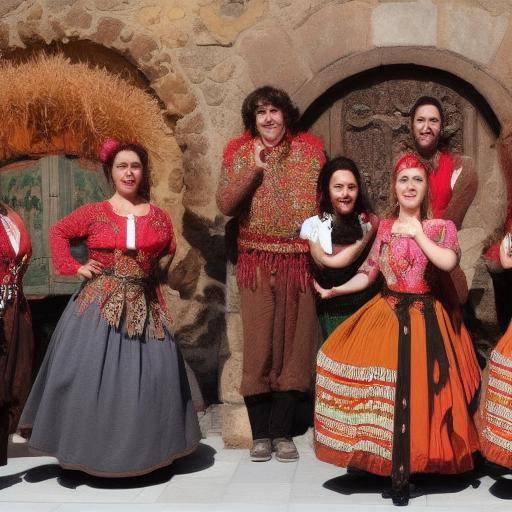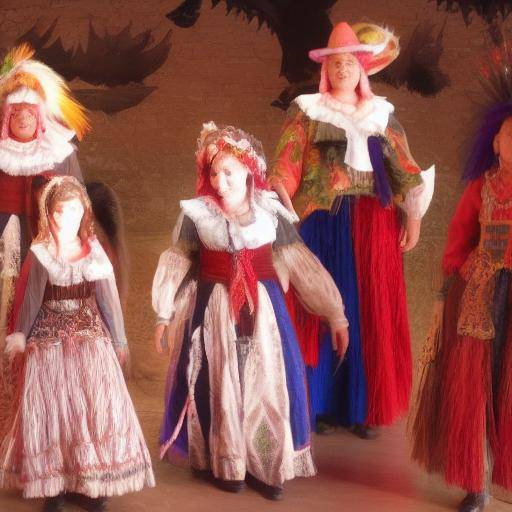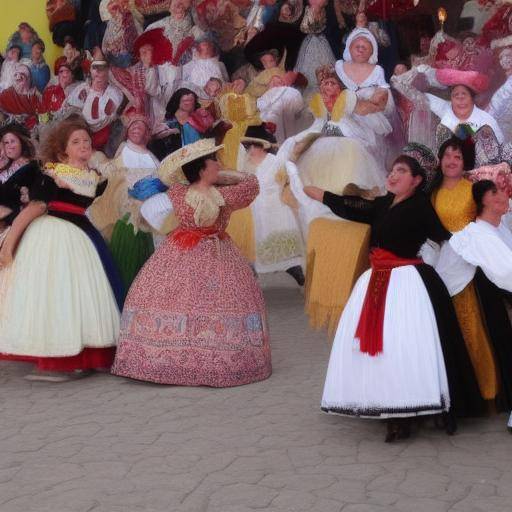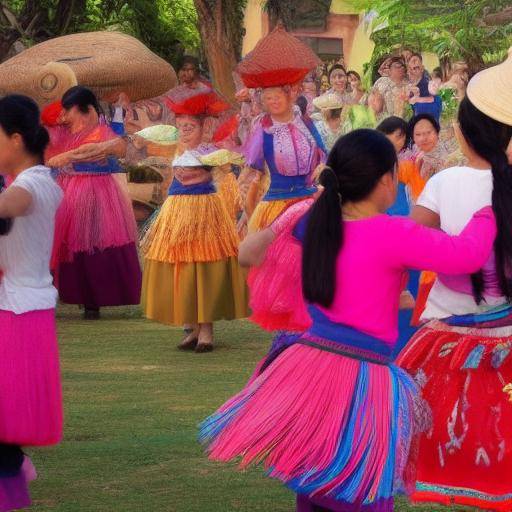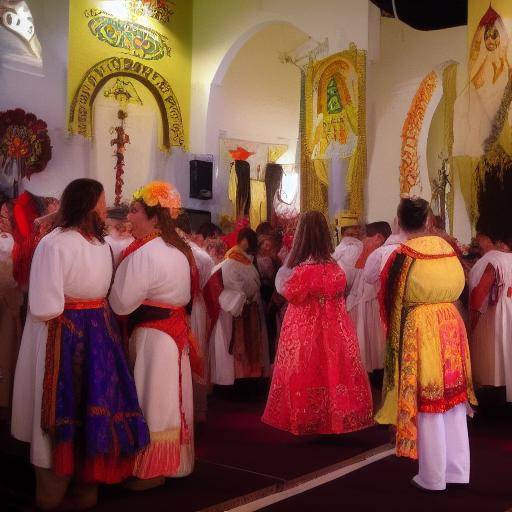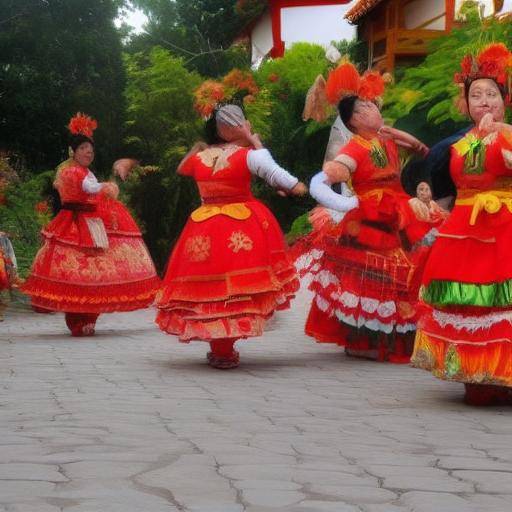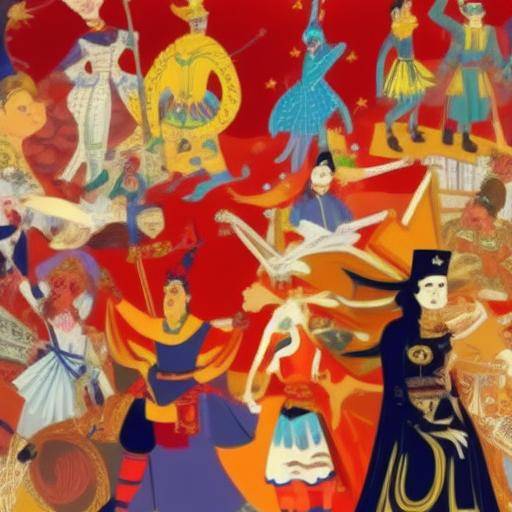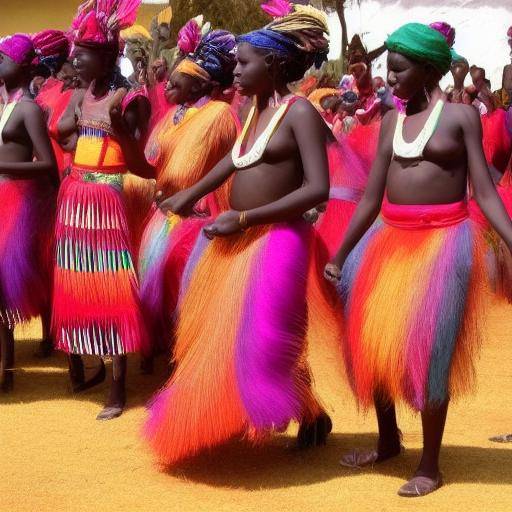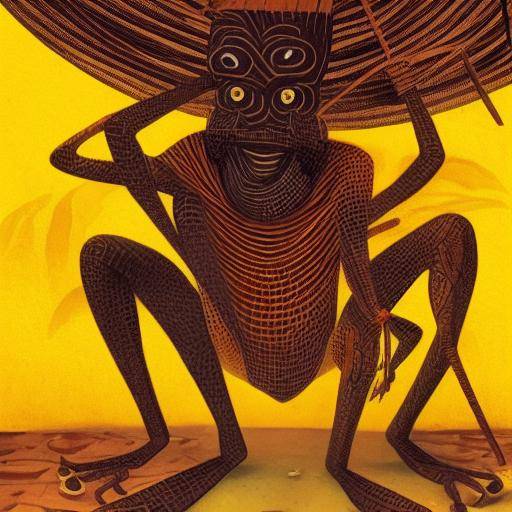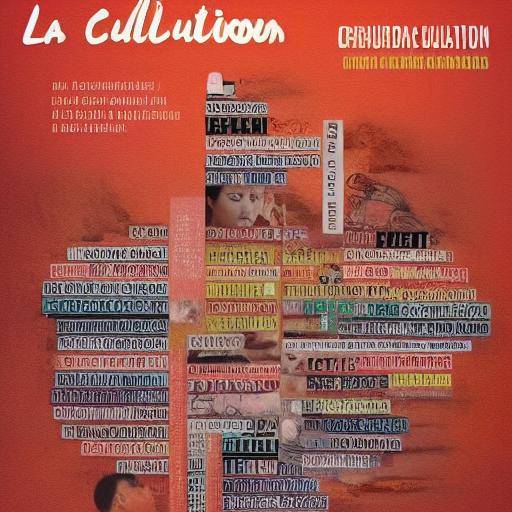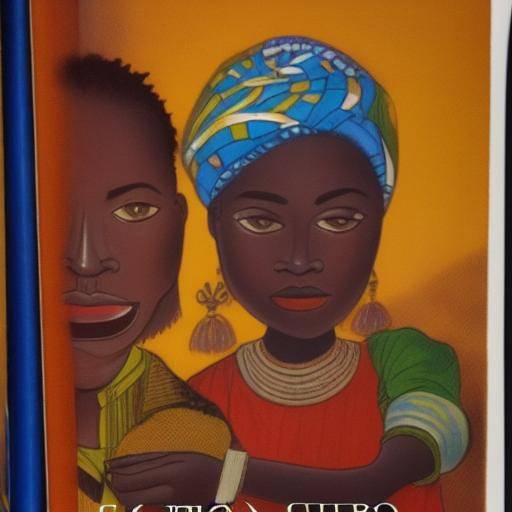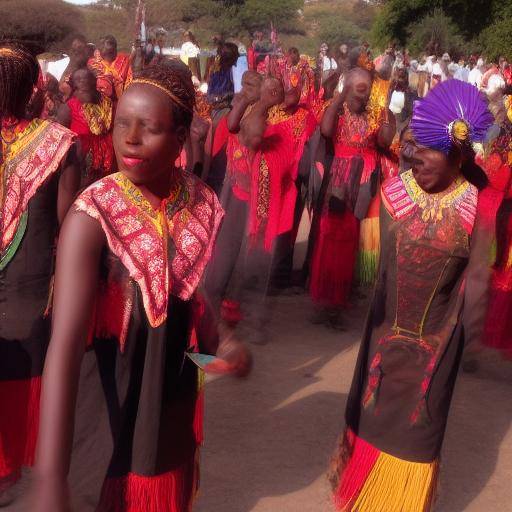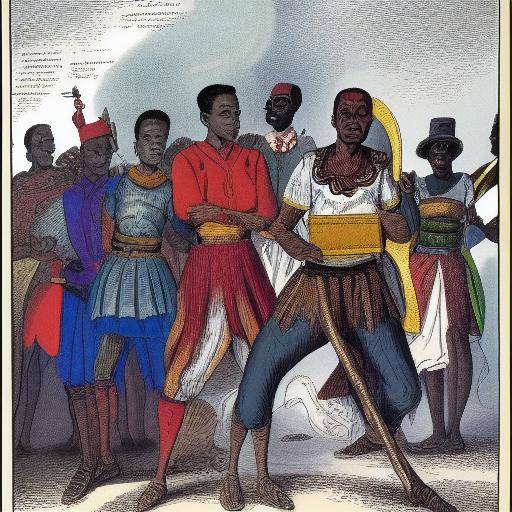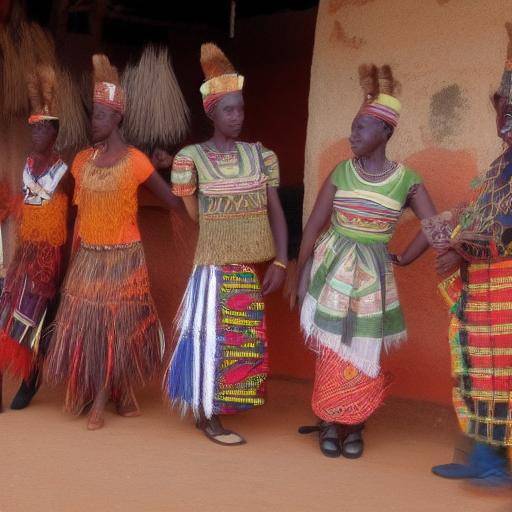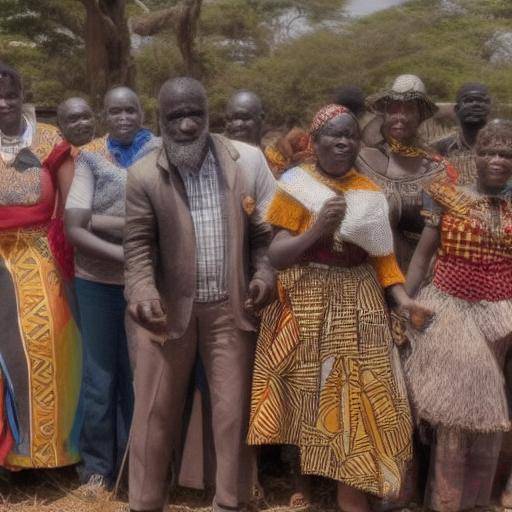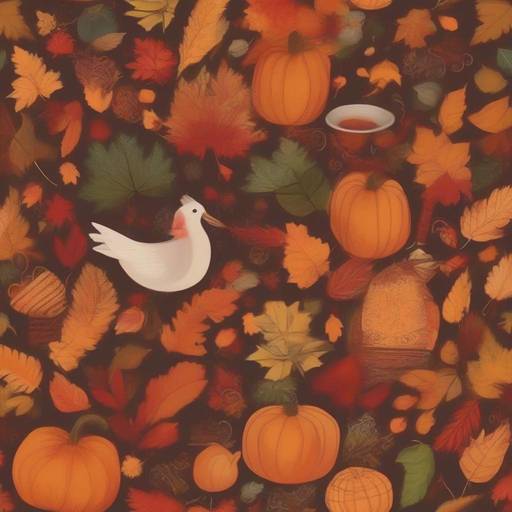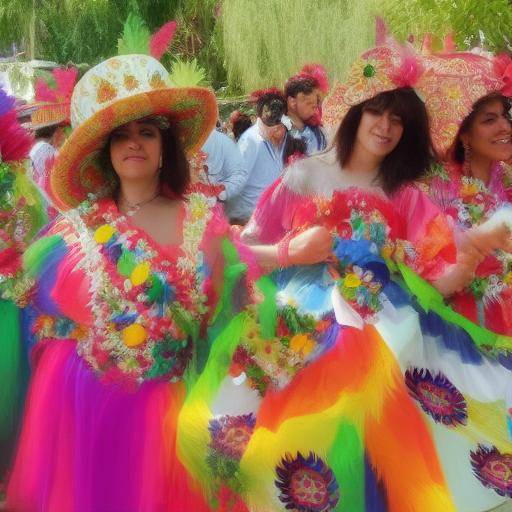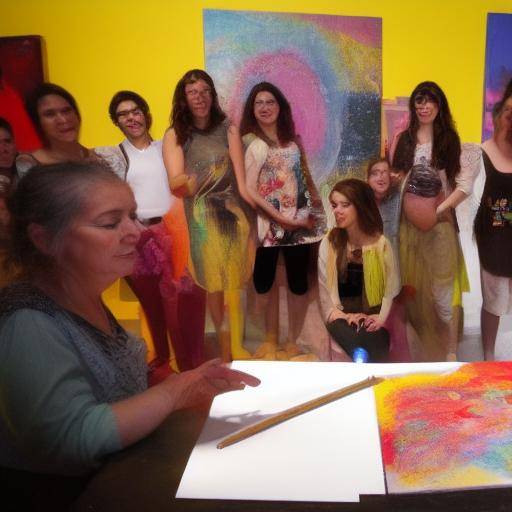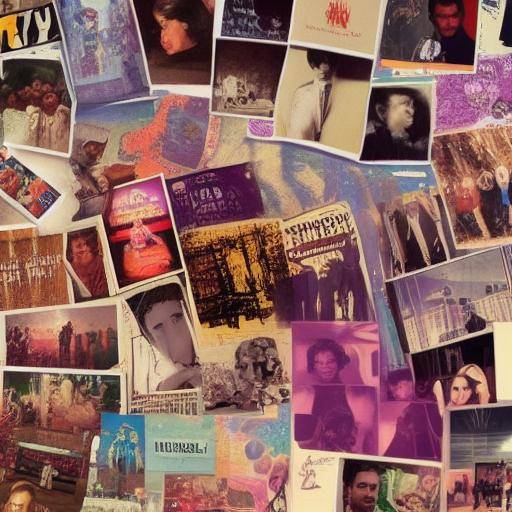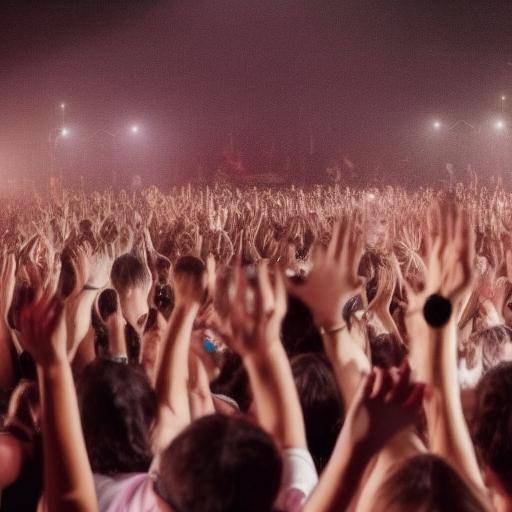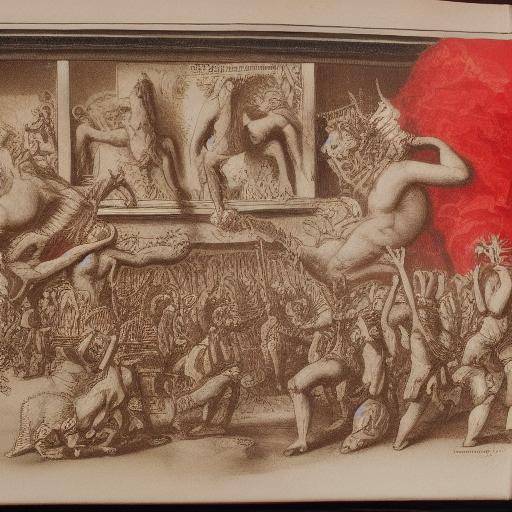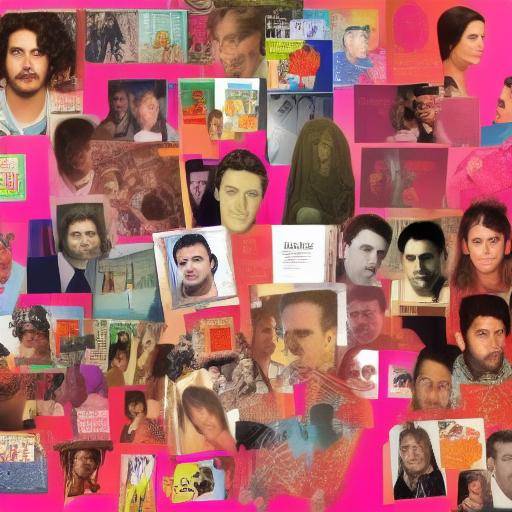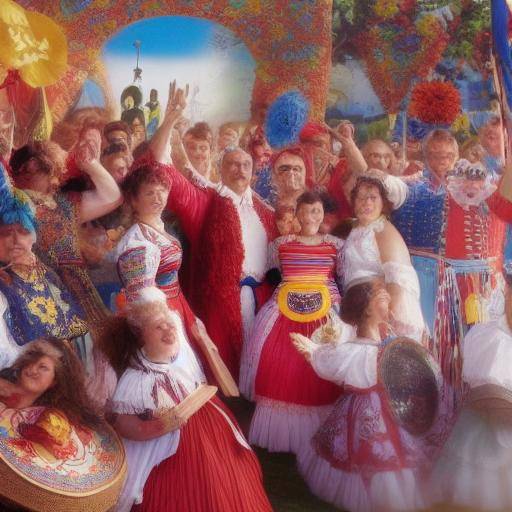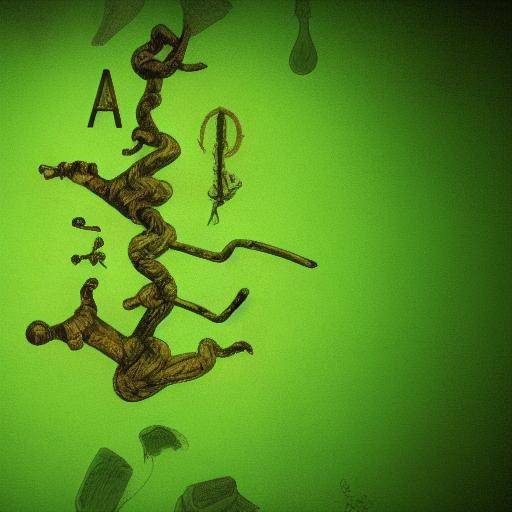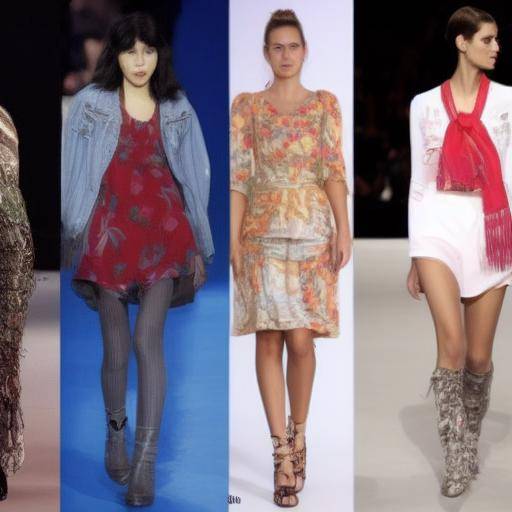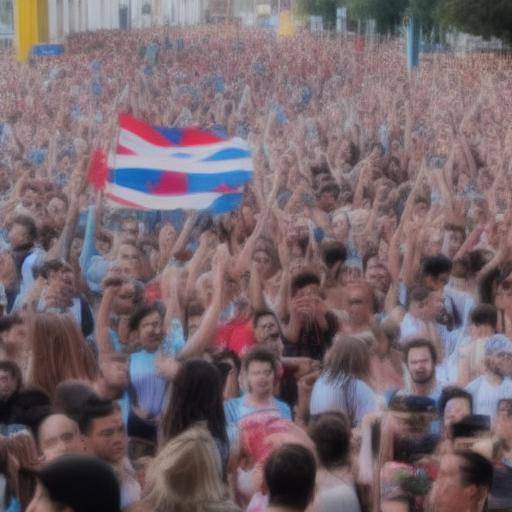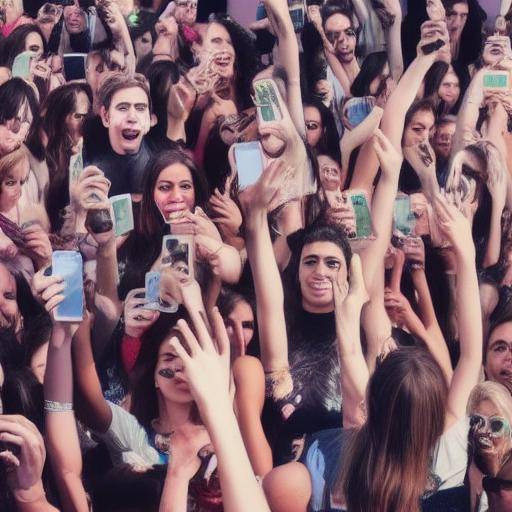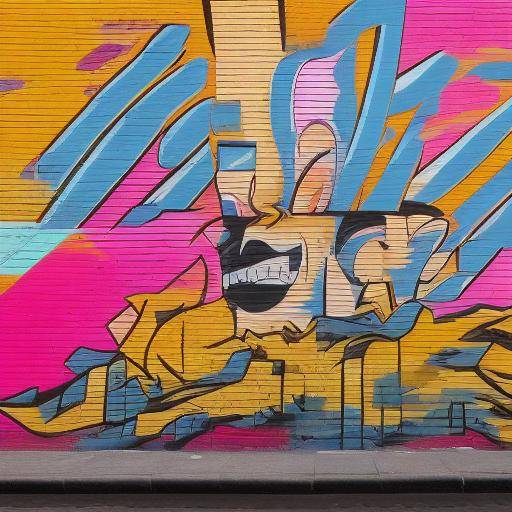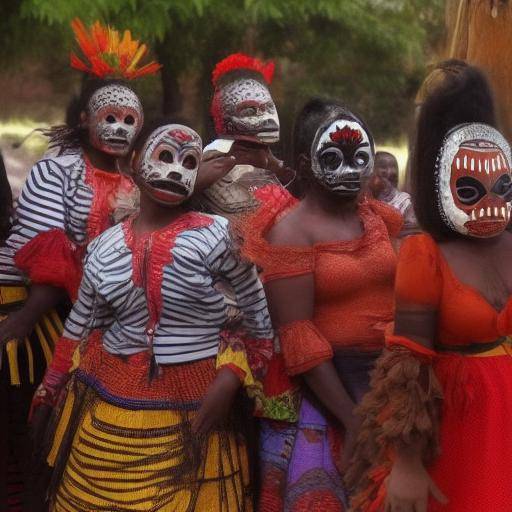
The African continent is known for its rich cultural diversity, expressed through different forms of art, music, dance and rituals. Among the most unique cultural expressions are the African masks, which play a fundamental role in the folklore and culture of different communities. In this article, we will explore the fascinating world of African masks, its long-standing history, its cultural significance and its relevance today.
Introduction
With their vibrant colors, elaborate designs and deep symbolism, African masks have captured the imagination of people from around the world. These works of art are much more than simple accessories; they are bearers of ancestral stories, traditions and beliefs that have endured over the centuries. In this immersive exploration, we will discover the cultural meaning of African masks, their role in folklore and how they continue to inspire and enrich the lives of African communities and beyond.
History and Background
African masks have a deeply rooted history dating back millennia. These fascinating artistic creations have played significant roles in ceremonies, rituals, celebrations, and community events throughout African history. From the Masai tribes in East Africa to the Yoruba in the West, each ethnic group has developed its own unique traditions and styles of masks, reflecting the cultural diversity of the continent.
African masks not only serve as ceremonial objects, but are also considered carriers of spiritual and ancestral wisdom. They are often linked to mythical stories, mythologies and traditional beliefs that are transmitted from generation to generation. In exploring the history of African masks, it is essential to understand their connection with the cultural roots of African communities and their role in preserving the history and identity of each ethnic group.
Analysis in Deep
African masks cover a wide range of forms, meanings and functions. From masks used in initiation rituals to those associated with healing, fertility, hunting or protection, each type of mask has its own cultural narrative and intrinsic symbolism. In addition, the process of creating African masks is impregnated with meticulous artisanal traditions, where artisanal masters employ generation-to-generation techniques to give life to these works of art.
At the present time, African masks continue to be a source of inspiration for artists, designers and collectors, and have become iconic symbols of African culture around the world. Beyond their aesthetic value, these masks carry with them the emotional and spiritual burden of past generations, establishing a unique link between the past, the present and the future.
Comprehensive review
African masks are not only objects of aesthetic admiration, but also play a crucial role in the preservation and promotion of African culture. Through its preservation and exhibition in museums, galleries and exhibitions, these works of art continue to be vehicles for educating, informing and sensitizing future generations of African cultural wealth. In turn, trade in African masks, both in its original form and in contemporary interpretations, contributes to the economy of artisanal communities, promoting sustainable development and the value of cultural heritage.
Comparative analysis
Folklore and African culture are intrinsically intertwined with the use of masks in various artistic, religious and social manifestations. These masks are not only objects of visual beauty, but also serve as transgenerational links that connect the past with the present, transcending linguistic and cultural barriers. Through its comparative study, we can appreciate the diversity of beliefs, traditions and aesthetic approaches that these masks represent in the different African communities, enriching the cultural landscape of the continent.
Practical Tips and Accessible Recommendations
If you want to get into the world of African masks, here are some practical tips and actionable recommendations:
- Investigate and learn about traditions and symbolisms associated with African masks from different regions.
- It supports local artists and craftsmen buying authentic and ethically produced masks.
- Visit museums and galleries that exhibit collections of African masks to deepen their cultural significance.
- Participates in cultural ceremonies and celebrations where African masks play a central role.
By following these tips, you will be able to appreciate and contribute significantly to the preservation and celebration of the rich cultural heritage that African masks represent.
Industry Perspectives and Expert Reviews
To better understand the relevance of African masks today, it is essential to examine the perspectives of experts in the field of African art, anthropology and culture. From museum curators to contemporary artists, these authorised voices offer us a unique vision of the cultural value, preservation and global impact of African masks today.
"African masks are silent witnesses of the history and culture of different communities, and their preservation is fundamental to keeping these ancestral traditions alive," says Dr. Adedoyin Babatunde, African art historian.
These expert voices offer valuable insights on the importance of preserving African cultural traditions and highlighting the fundamental role that masks play in this context.
Case Studies and Real Life Applications
To fully understand the impact of African masks, we will explore various case studies that reveal their influence on different aspects of contemporary life. From their integration into contemporary art to their use in educational contexts, African masks continue to play a dynamic and relevant role in the current world.
In the fashion design industry, the use of motifs and patterns inspired by African masks has led to innovative collections that merge the traditional with the contemporary, bringing with it a message of diversity and cultural appreciation. In addition, in the educational field, African masks are used as educational tools to teach students about cultural diversity and the importance of African cultural heritage in a global context.
These examples illustrate how African masks continue to influence and inspire in various fields, transcending geographical and cultural barriers.
Future Trends and Predictions
As the world moves towards a more interconnected global landscape, African masks will continue to be prominent in collective awareness, attracting the attention of new audiences and generating greater appreciation for Africa ' s cultural diversity. With the advancement of digital technology and platforms, African masks are expected to be disseminated and appreciated globally, promoting intercultural dialogue and a greater understanding of the artistic and spiritual wealth of the African continent.
At the same time, African communities are expected to continue revitalizing traditional mask-related practices, integrating them innovatively into contemporary cultural fabric. In turn, strengthening efforts to preserve African cultural heritage will ensure that African masks remain a living legacy for future generations.
Conclusions and FAQs
ConclusionIn conclusion, African masks occupy a central place in the folklore and culture of the African continent, encompassing a rich history, deep symbolic meanings and a lasting contemporary relevance. Their preservation, study and appreciation continue to play a key role in promoting understanding and respect for Africa ' s cultural diversity. By exploring its history, meaning, applications in modern life and future perspectives, we can appreciate the lasting importance of these works of art as living testimonies of African cultural heritage.
Frequently asked questions
- **What is the meaning behind African masks?**African masks often represent spirits, ancestors, gods or elements of nature, and their meaning varies according to the ethnic community and the associated tradition.
- **How are African masks used in ceremonies and rituals?**African masks are used in a wide variety of ceremonies, including initiation rituals, fertility celebrations, healings and social and religious events.
- **What is the role of African masks in contemporary culture?**African masks remain a source of inspiration in art, fashion and education, and continue to play a relevant role in promoting cultural diversity and global awareness.
- **Where can I acquire authentic African masks?**Authentic African masks can be acquired through specialized art galleries, African local markets and craft shops with a reputation established in the ethical sale of African art.
- **What is the importance of preserving traditions associated with African masks?**The preservation of traditions linked to African masks is essential to safeguard Africa ' s rich cultural heritage and ensure its transcendence towards future generations.
- **How can I learn more about African masks and their cultural context?**Research, museum visits and participation in cultural activities related to Africa are excellent ways to get into the fascinating world of African masks and their cultural context.
Through these frequent questions, we can explore key aspects related to African masks, providing a deeper and insightful view of their cultural significance and place in African folklore.
Concluding, African masks are not only objects of aesthetic beauty, but they also embody the rich history, traditions and beliefs of the various African communities. Its lasting presence in folklore and African culture bears witness to the vitality and continued relevance of these ancient artistic expressions in the modern world. In celebrating and appreciating African masks, we honor the depths of African cultural heritage and recognize its importance as global artistic treasures.
This concludes our dive in the fascinating universe of African masks and their influence on the folklore and culture of the African continent.

